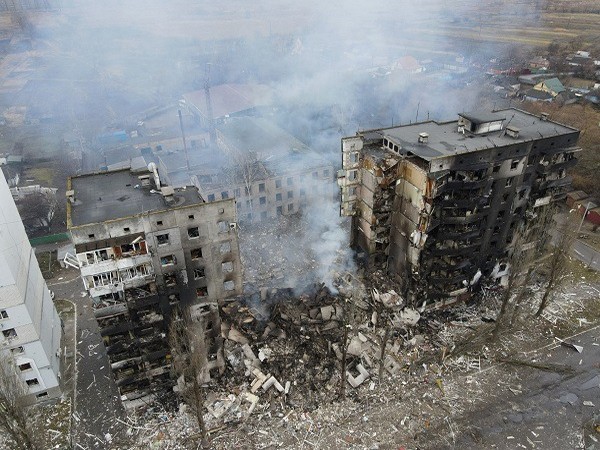Russia starts exercise to simulate launch of tactical nuclear weapons
May 22, 2024
Moscow [Russia], May 22: Russian forces have started the first stage of exercises ordered by President Vladimir Putin to simulate preparation for the launch of tactical nuclear weapons, the Defence Ministry said.
Moscow has linked the exercises to what it calls "militant statements" by Western officials, including French President Emmanuel Macron, which it said created security threats for Russia.
Nuclear analysts say the exercises are designed as a warning signal by Putin to deter the West from wading more deeply into the war in Ukraine. Western countries have provided weapons and intelligence to Kyiv but have refrained from sending troops.
The Defence Ministry said the first stage of the exercise involved Iskander and Kinzhal missiles.
It is aimed at ensuring that units and equipment are ready for "the combat use of non-strategic nuclear weapons to respond and unconditionally ensure the territorial integrity and sovereignty of the Russian state in response to provocative statements and threats of individual Western officials against the Russian Federation", the ministry said.
The drills involve missile forces in Russia's Southern Military District, which lies adjacent to Ukraine and also includes parts of Ukraine that Russia now controls.
Belarus, where Russia said last year it was deploying tactical nuclear weapons, will also be involved, the two countries have said.
Tactical, or non-strategic, nuclear weapons are less powerful than the strategic arms designed to wipe out whole enemy cities, but they nevertheless have vast destructive potential.
Some Western analysts believe non-strategic nuclear weapons have acquired greater importance in Moscow's thinking since the start of the war in Ukraine, where its conventional forces struggled in the first two years.
In theory the use of such a weapon could deliver a stunning shock to the West without necessarily triggering a full-blown nuclear war, though the risk of triggering a cycle of escalation would be huge.
'SPECIAL AMMUNITION'
Russia has about 1,558 non-strategic nuclear warheads, according to the Federation of American Scientists, although there is uncertainty about exact figures. They are controlled by the Russian Defence Ministry's 12th Main Directorate, known as 12th GUMO.
The ministry said troops were practising obtaining "special ammunition" - meaning nuclear warheads - for Iskander missiles, equipping launch vehicles with them and "covertly advancing to the designated position in preparation for missile launches".
It said aviation units were also practising the fitting of special warheads to Kinzhal hypersonic missiles, and flying into designated patrol areas.
Video released by the ministry showed missiles being transported in a convoy of military vehicles and placed in position ready for firing.
"The exercises are, obviously, a signal in response to discussion of NATO countries' troops in Ukraine. The most important features are advance announcement and visibility," Nikolai Sokov, a former Soviet and Russian arms control official, told Reuters.
Western militaries will be watching the exercises closely and seeking to draw conclusions about how much warning time they would have if Russia deployed such weapons for real, he said.
"The involvement of 12th GUMO can produce insights into how much time the release of warheads takes, how well detectable, how much warning," said Sokov, a senior fellow at the Vienna Center for Disarmament and Non-Proliferation.
The involvement of Kinzhal, he said, was "a new element I did not expect to see", although there was no doubt about its capability to carry both nuclear and conventional warheads.
When Putin ordered the drills this month, Russia's Foreign Ministry linked them to comments by France's Macron, who floated the possibility of sending European troops to fight Moscow in Ukraine, and British Foreign Secretary David Cameron, who said Kyiv had the right to use weapons provided by London to strike targets inside Russia. It also cited the provision of long-range British, French and U.S. ATACMS missiles to Kyiv.
The Foreign Ministry said on May 6 the exercises should send a "sobering signal" to the West and its "puppets" in Ukraine.
"We hope these drills will cool the hot heads in Western capitals," it said, adding the West should realise "the potential catastrophic consequences of the strategic risks they are generating" and stop short of direct military confrontation with Russia.
Source: Fijian Broadcasting Corporation








